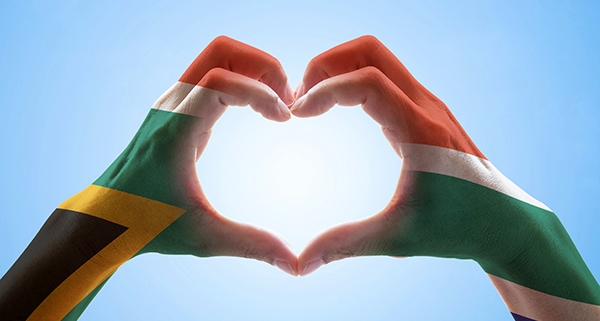Building blocks to connect our youth
By Efterpi Sotiriou
“Education can shape the coming generations into virtuous, informed citizens committed to achieving equality, and can provide our children and grandchildren with pathways to solving political and societal problem we ourselves are unable to resolve” (Archbishop Thabo Makgoba).
As we collectively settle into the start of a new Term (2) and welcome the end of the first quarter of a new academic year, we remain ever mindful of our firm commitment and undertaking to provide optimum support to our students on multiple fronts. This extends far beyond goading students to do their homework, read more, tidy up, reduce their screen time, brush their teeth or sit up straight.
The 29th of May 2024 has been set up as a significant “goal post” in the South African calendar. It is election time and all that goes with it… but it is also an opportunity to generate a related dialogue – beyond the political debate – with the all-important emergent South African citizenry – our children, the future.
Within the context of the forthcoming election, it is essential to engage young people in conversations about:
- democracy
- leadership
- the power of our voices
- the pitfalls of fake news and disinformation
- digital vigilance
- the impact of advertising
- the importance and consequence of voting.
We can embark on the conversation with “yes, you can’t vote right now but you may be voting in the next election and when that time comes, will you be ready?”.
Your conversations need not amount to imposing viewpoints. They may provide an ‘open door’ for the exploration of active citizenry – how we can all stand tall and small; now and later; contribute to a collective national well-being. Awareness, healthy and robust exchanges and engagement in thought and action are key. President Kennedy inspired children and adults to see the importance of civic action and public service. His historic words – “ask not what your country can do for you, ask what you can do for your country” – can challenge every South African to “do their bit”. Brainstorm with your child what they could do to help your family, their school, community or country, in some way.
Turning to language skills: increase their word count to include a new, election-related spectrum of words (manifesto, ballot paper, franchise, polling station), draw attention to speeches – their choice of words, length, structures, modes of delivery, clothing choices and impact. Talk about effective, misleading terminology: encourage insight, analysis and review of written and spoken words. A compendium of such language skills assumes an ever-increasing relevance in the midst of the emergent flood of dis-information.
The numerical predominance of the youth within our country, their potential for advancing transformative change and the significant objective of securing a better future for them; all serve to focus attention on their empowerment. We are reminded that they are the next generation and that it is up to us to give them the tools and opportunities to build it.






